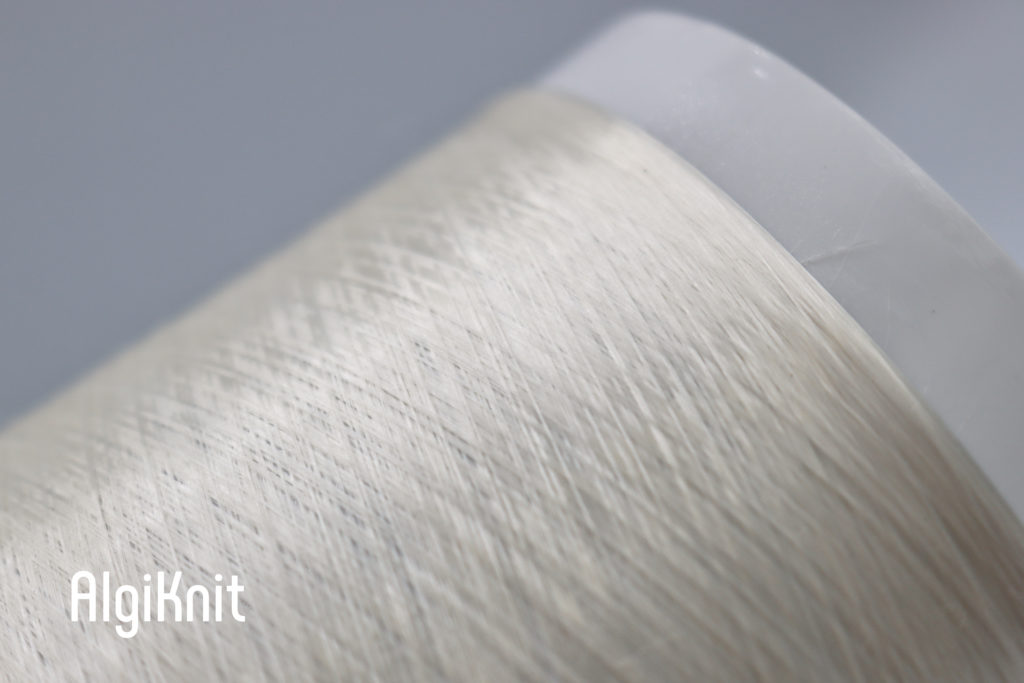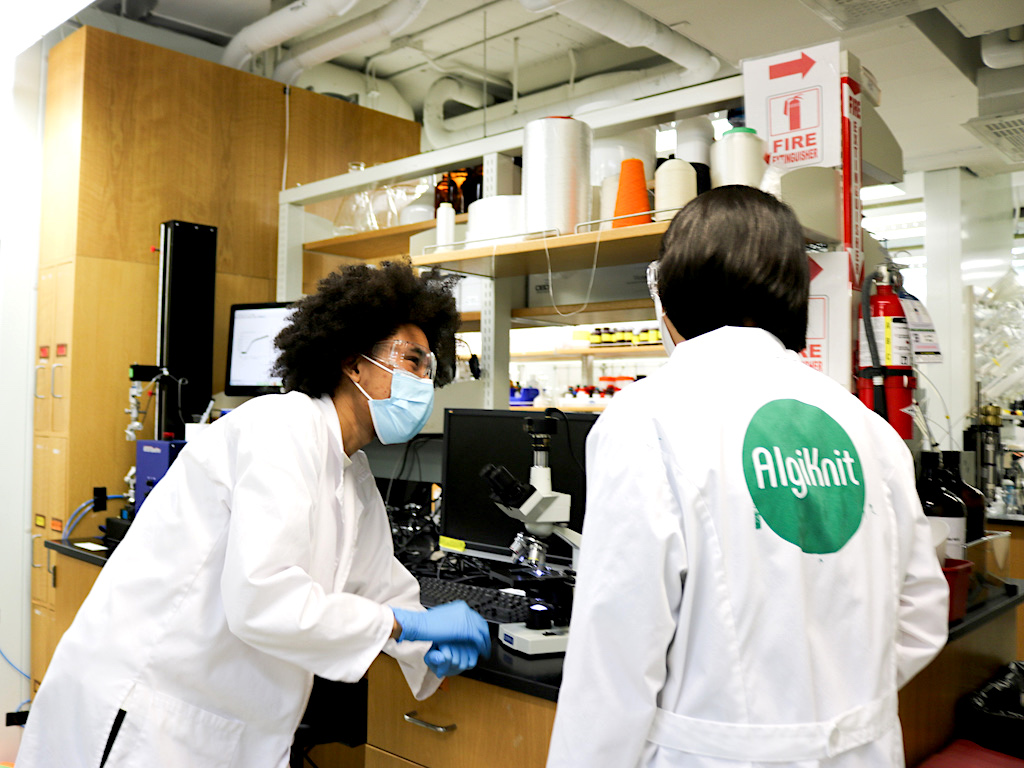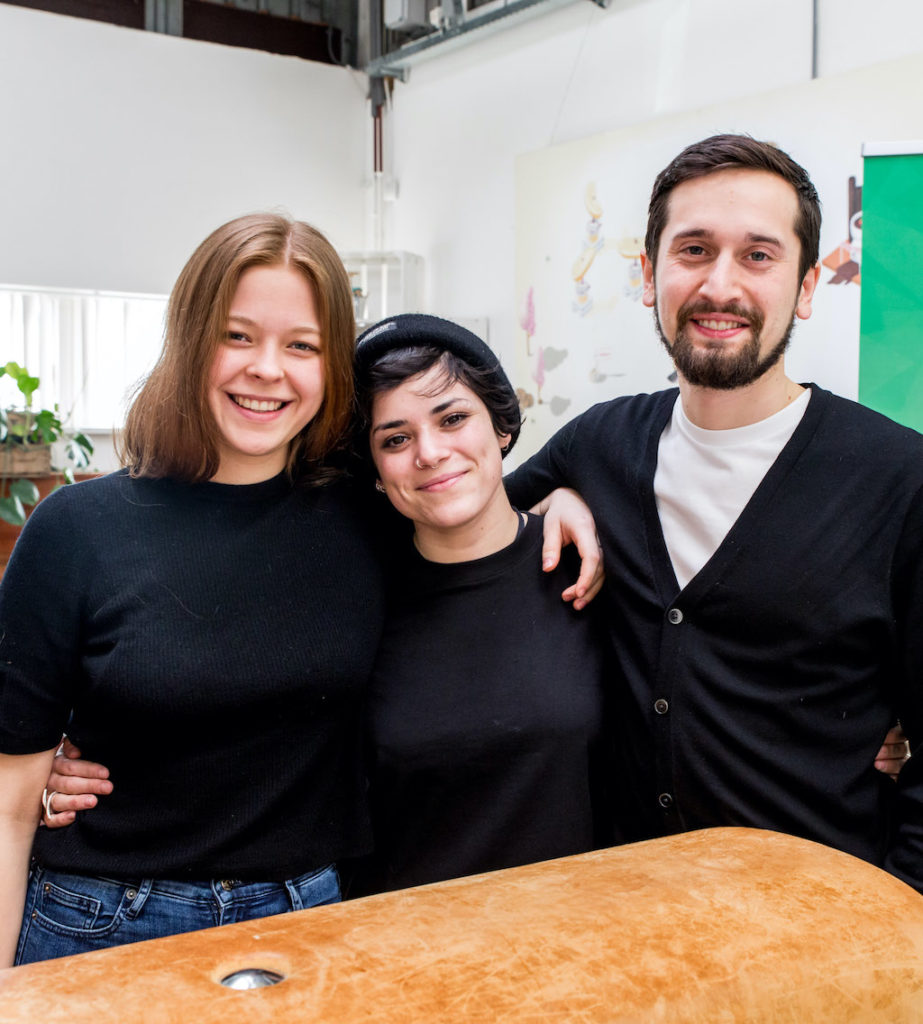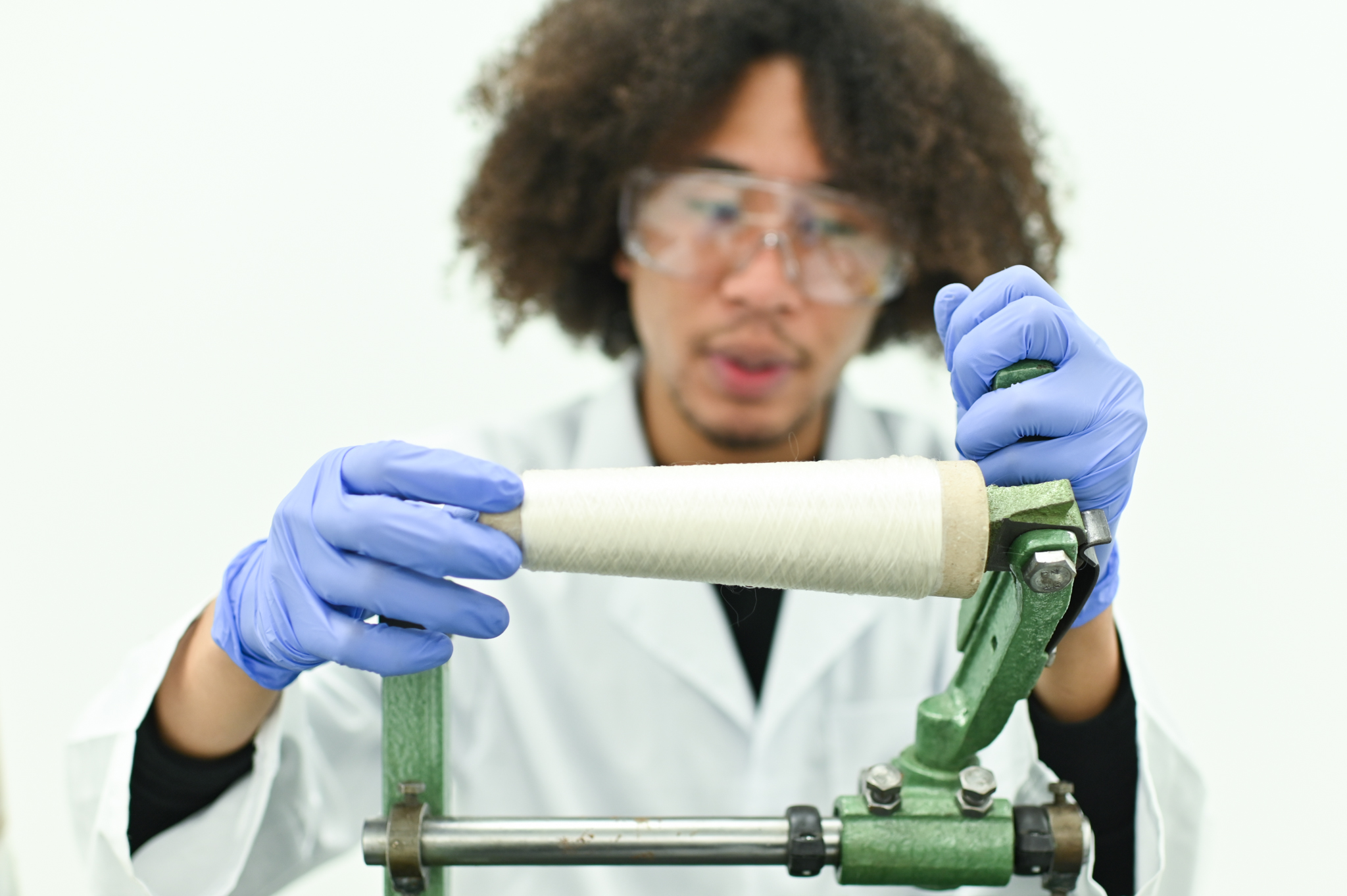3 Mins Read
New York sustainable materials startup AlgiKnit has closed a $13 million Series A funding round, led by Collaborative Fund. Other participants include H&M CO:LAB, Starlight Ventures, Third Nature Ventures, and existing backers Horizons Ventures and SOSV. Total funding to date has now reached $17.9 million, making AlgiKnit a substantial player in the biomaterials niche.
The new investment will be used to scale production of AlgiKnit’s proprietary kelp-based yarns and fibres. It comes as the startup has just officially opened its new facility within North Carolina’s Research Triangle, ready to service multiple industries. Fashion, interiors, furnishings, and automotive have been specifically named as sectors AlgiKnit will be supplying with its environmentally friendly materials.

Sustainability throughout the company
AlgiKnit was founded with a mandate to disrupt the fashion and textile industries, specifically their impact on the environment. The fashion industry has been identified as the third-largest polluter. In a report by the World Economic Forum, the creation of synthetic fibres was found to contribute to the majority of fashion’s carbon footprint.AlgiKnit’s yarns are created from regenerative and infinitely renewable kelp, which creates a far lower footprint.
“The textile industry is responsible for as much as 8% of the world’s CO2 emissions – in addition to being massively polluting and water-intensive. We’re thrilled to be leading AlgiKnit’s Series A round, and to be investing in a technology that is pushing the world towards a more sustainable future,” Sophie Bakalar, partner at Collaborative Fund said in a statement.
Taking things further than just product sustainability, AlgiKnit has sought to build out its new facility with eco practices in mind. The 15,000 square foot expansion was completed using upcycled materials wherever possible and finished with second-hand furniture.
“The building process was predicated on creating a vibrant, innovative working environment without compromising our commitment to the planet. From utilizing an existing space that met our specifications to reusing and repurposing as much as we possibly could, sustainability was always top of mind.” Aleksandra Gosiewski, co-founder and COO of AlgiKnit, who led the company’s expansion to North Carolina, said in a statement.

Scaled for success
AlgiKnit’s new facility will allow the startup to scale for widespread fashion industry disruption. The team is looking to increase its partnerships and personnel now ahead of a predicted global demand for quantified sustainable materials.
“This is a huge next step in bringing this technology to scale, and creating positive, tangible change for the planet. We are so excited to partner with new and existing investors who share our vision for transforming the fashion ecosystem,” Tessa Callaghan, co-founder and CEO of AlgiKnit said in a statement.

The changing face of fashion
Earlier this month, Pangaia announced another environmentally motivated capsule collection. Working with Spiber, the brand has released its NXT GEN hoodie, made using bio-based fabric made from fermented protein. Dubbed Brewed Protein, the fermented development is blended with organic cotton to create a fashion-stable material. Pangaia’s hoodie comes after the brand already worked with nettle fibre denim and more recently, bacteria-based dyes inspired by colours from nature.
Modern Synthesis recently confirmed it had scooped $4.1 million to continue its R&D into microbial textiles. Using agricultural waste as a feedstock, the startup produces a weaveable nanocellulose material, which is entirely biodegradable. The product has been shown to be a credible alternative to animal leather, including within footwear applications. Sampling and small batch runs to assess production capabilities will now commence.
In May, San Francisco’s VitroLabs received backing from luxury group Kering in a $46 million Series A funding round. The biotech startup cultivates animal-derived leather that it claims is less environmentally damaging than its conventional counterpart.
All photos by AlgiKnit.




